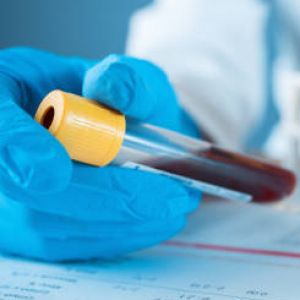Everything You Want to Know About Hereditary Angioedema (HAE)Posted by Vivian creative on June 1st, 2021 Being a part of the adaptive immunity, the classical pathway of the complement system to form membrane-lysis complex is stimulated by antigen-antibody complexes and involved in the activation of the complement system. But not all immune responses are necessary and beneficial to our bodies, for which protease inhibitors are generated to prevent spontaneous activation of the complement system. Nevertheless, evidence found that deficiency of inhibitors derived from genetic disorders leads to hyperactivation of the classical pathway of the complement system, resulting in several complement inhibitor associated diseases. One of the most severe conditions is hereditary angioedema (HAE), which is caused by the heterozygous deficiency of C1-inhibitor (C1-INH). Introduction to HAE
Studies display that kids, one of whose biological parents suffers from HAE, have a 50% chance of inheriting it. Though hereditary angioedema is deemed as a hereditary condition passing down from one generation to the next, up to 25% of cases have been identified as the result of a spontaneous mutation at the time of conception. Mutations elicit reduced levels of C1-INH in the blood and affect the gene responsible for the production of the inhibitor. It's estimated that HAE affects people from 1 out of 10000 to 1 out of 50000, while the true number of cases is not completely recognized due to a limited understanding of the condition and the confusing symptoms similar to other disorders. HAE can be grouped into three types, in which type 1 and type 2 account for almost all cases. Type 1 patients often are observed with a low level of C1-inhibitor in their blood. On the contrary, the C1-inhibitor level in type 2 patients is normal (or close to normal) but the protein is not functional. As for the third type HAE with functional C1-INH and a normal production level, it's a rare condition primarily affecting natal females and not fully understood. About Hereditary Angioedema Attacks & Symptoms
HAE is a chronic disease and its episodes can occur throughout a person’s life. Most of the time, according to the U.S. Hereditary Angioedema Association, HAE attacks can be triggered by stress, trauma, anxiety, illnesses such as the common cold or flu, surgery, etc. but it could also occur for no obvious reason. Symptoms of the condition mainly are recurrent swelling of the skin and mucous membranes. Skin swelling could lead to dysfunction, pain, or even disfigurement. The areas affected by skin swelling include the face, hands, arms, feet, legs, genitals, buttocks, and airway. Occasionally, swelling of the abdomen, throat, or other organs can be observed. Swelling of the abdomen causes additional symptoms like pain, diarrhea, and vomiting, which are often mistaken by healthcare professionals for a surgical emergency. Extreme situations like acute angioedema in the throat or tongue can lead to difficulty breathing and even become life-threatening. Diagnosis and Treatment Because of the central role of the inhibitor in the condition, it is often necessary to assess the activity of the C1 complement inhibitor to diagnose and monitor HAE, as well as to measure the efficacy of some treatments. Of note, analyzing the activity of C1-INH doesn't mean simply measuring levels of the protein, as the nonfunctional protein though with a high level still won't help prevent the activation of the complement system. The treatment of HAE focuses on preventing the condition attacks and easing the severity of the symptoms as it occurs. Most cases of HAE are acute allergic reactions that hopefully will be resolved by themselves, but if the swelling occurs around the throat or tongue, it could rapidly develop into a life-threatening situation and require urgent medical attention. Like it? Share it!More by this author |


